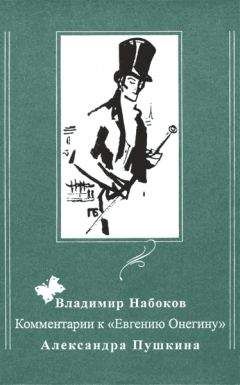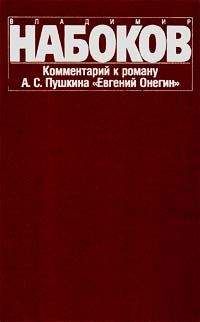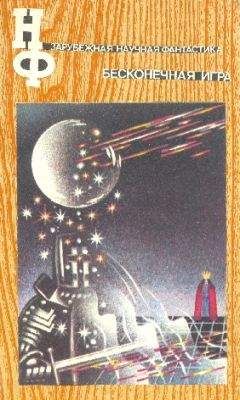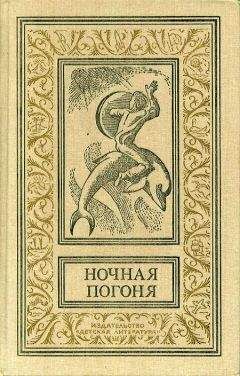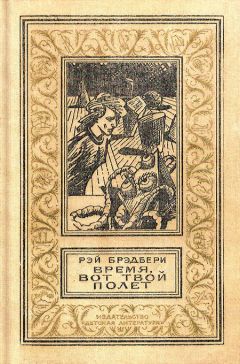XIX
Tatiana looks with melting gaze
at everything around her,
and all to her seems priceless,
4 all quickens her languorous soul
with a half-painful joyance:
the desk with its extinguished lamp,
a pile of books, and at the window
8 a carpet-covered bed, and from the window
the prospect through the lunar gloom,
and this pale half-light, and Lord Byron's portrait,
and a small column
12 with a cast-iron statuette
with clouded brow under a hat,
with arms crosswise compressed.
Tatiana in the modish cell
stands long as one bewitched.
But it is late. A cold wind has arisen.
4 It's dark in the dale. The grove sleeps
above the misted river;
the moon has hid behind the hill,
and it is time, high time,
8 that the young pilgrimess went home;
and Tanya, hiding her excitement,
and not without a sigh,
starts out on her way back;
12 but first she asks permission
to visit the deserted castle
so as to read books there alone.
Beyond the gate Tatiana parted
with the housekeeper. A day later,
early at morn this time, again she came
4 to the abandoned shelter,
and in the silent study, for a while
to all on earth oblivious, she
remained at last alone,
8 and long she wept.
Then to the books she turned.
At first she was not in a mood for them,
but their choice seemed to her
12 bizarre. Tatiana fell to reading
with avid soul; and there revealed itself
a different world to her.
Although we know that Eugene
had long ceased to like reading,
still, several works
4 he had exempted from disgrace:
the singer of the Giaour and Juan
and, with him, also two or three
novels in which the epoch is reflected
8 and modern man
rather correctly represented
with his immoral soul,
selfish and dry,
12 to dreaming measurelessly given,
with his embittered mind
boiling in empty action.
Many pages preserved
the trenchant mark of fingernails;
the eyes of the attentive maiden
4 are fixed on them more eagerly.
Tatiana sees with trepidation
by what thought, observation
Onegin would be struck,
8 what he agreed with tacitly.
The dashes of his pencil she
encounters in their margins.
Unconsciously Onegin's soul
12 has everywhere expressed itself —
now by a succinct word, now by a cross,
now by an interrogatory crotchet.
And my Tatiana by degrees
begins to understand
more clearly now — thank God —
4 him for whom by imperious fate
she is sentenced to sigh.
A sad and dangerous eccentric,
creature of hell or heaven,
8 this angel, this proud fiend, what, then, is he?
Can it be, he's an imitation,
an insignificant phantasm, or else
a Muscovite in Harold's mantle,
12 a glossary of alien vagaries,
a complete lexicon of words in vogue?...
Might he not be, in fact, a parody?
Can she have solved the riddle?
Can “the word” have been found?
The hours run; she has forgotten
4 that she is long due home —
where two neighbors have got together,
and where the talk is about her.
“What should one do? Tatiana is no infant,”
8 quoth the old lady with a groan.
“Why, Olinka is younger.... It is time,
yea, yea, the maiden were established;
but then — what
can I do with her?
12 She turns down everybody with the same
curt ‘I'll not marry,’ and keeps brooding,
and wanders in the woods alone.”
“Might she not be in love?” “With whom, then?
Buyánov offered: was rejected.
Same thing with Ivan Petushkóv.
4 There guested with us a hussar, Pïhtín;
oh my, how sweet he was on Tanya,
how he bestirred himself, the coax!
Thought I: perchance, she will accept;
8 far from it! And again the deal was off.”
“Why, my dear lady, what's the hindrance?
To Moscow, to the mart of brides!
One hears, the vacant places there are many.”
12 “Och, my good sir! My income's scanty.”
“Sufficient for a single winter;
if not, just borrow — say, from me.”
Much did the old dame like
the sensible and sound advice;
she checked accounts — and there and then decided
4 in winter to set out for Moscow;
and Tanya hears this news....
Unto the judgment
of the exacting beau monde to present
8 the clear traits of provincial
simplicity, and antiquated finery,
and antiquated turns of speech;
the mocking glances
12 of Moscow fops and Circes to attract....
O terror! No, better and safer,
back in the woods for her to stay.
With the first rays arising
she hastens now into the fields
and, with soft-melting eyes
4 surveying them, she says:
“Farewell, pacific dales,
and you, familiar hilltops,
and you, familiar woods!
8 Farewell, celestial beauty,
farewell, glad nature!
I am exchanging a dear quiet world
for the hum of resplendent vanities!...
12 And you, my freedom, farewell, too!
Whither, wherefore, do I bear onward?
What does my fate hold out for me?”
Her walks last longer.
At present, here a hillock, there a brook,
cannot help stopping
4 Tatiana with their charm.
She, as with ancient friends,
with her groves, meadows,
still hastens to converse.
8 But the fleet summer flies.
The golden autumn has arrived.
Nature, tremulous, pale,
is like a victim richly decked....
12 Now, driving clouds along, the North
has blown, has howled, and now herself
Winter the sorceress comes.
She came, scattered herself; in flocks
hung on the limbs of oaks;
in wavy carpets lay
4 amid the fields, about the hills;
the banks with the immobile river
made level with a puffy pall.
Frost gleamed. And we are gladdened
8 by Mother Winter's pranks.
By them not gladdened is but Tanya's heart:
she does not go to meet the winter,
inhale the frostdust,
12 and with the first snow from the bathhouse roof
wash face, shoulders, and breast.
Tatiana dreads the winter way.
The day of leaving is long overdue;
the last term now goes by. Inspected,
relined, made solid is the sledded coach
4 that to oblivion had been cast.
The usual train of three kibitkas
carries the household chattels:
pans, chairs, trunks, jams in jars,
8 mattresses, feather beds,
cages with roosters, pots,
basins, et cetera —
well, plenty of all kinds of goods.
12 And now, among the servants in the log hut,
a hubbub rises, farewell weeping:
into the courtyard eighteen nags are led.
They to the master coach are harnessed;
men cooks prepare lunch; the kibitkas
are loaded mountain-high;
4 serf women, coachmen brawl.
Upon a lean and shaggy jade a bearded
postilion sits. Retainers at the gate
have gathered, running,
8 to bid their mistresses farewell. And now
they've settled, and the venerable sleigh-coach
beyond the gate creeps, gliding.
“Farewell, pacific sites!
12 Farewell, secluded refuge!
Shall I see you?” And from the eyes
of Tanya flows a stream of tears.
